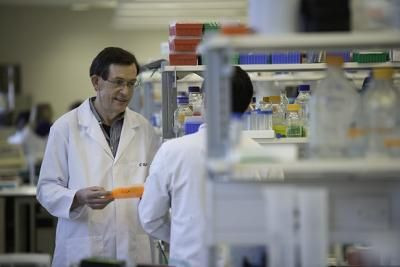Scientists Develop New Method of "Starving" Cancer Cells

The cellular component eEF2K has been a focus of research ever since scientists discovered its role in the proliferation of cancer cells.
Most recently, a professor of Cellular Regulation in Biological Sciences at the University of Southampton in England, collaborating with the BC Cancer Agency Research Centre, found that targeting eEF2K in cancer cells could assist in killing them without harming normal cells.
"Cancer cells grow and divide much more rapidly than normal cells, meaning they have a much higher demand for and are often starved of, nutrients and oxygen," Professor Chris Proud said. "...eEF2K plays a critical role in allowing cancer cells to survive nutrient starvation, whilst normal, healthy cells do not usually require eEF2K in order to survive. Therefore, by blocking the function of eEF2K, we should be able to kill cancer cells, without harming normal, healthy cells in the process."
The research was recently published in the journal Cell.
Unlike traditional chemotherapy and radiotherapy, which cause damage to normal cells, targeting eEF2K wouldn't hurt healthy cells, and it could also be used in treating a wide variety of cancers.
According to the National Center for Biotechnology Information (NCBI), eEF2K is a gene that encodes a highly conserved protein kinase that is involved in the regulation of protein synthesis. The activity of the kinase is increased in many cancers and "may be a valid target for anti-cancer treatment." eEF2K stands for "Eukaryotic elongation factor-2 kinase."
Research published in 2010 showed that "activation of eEF2K... plays a protective role for cancer cells under metabolic stress conditions, and that targeting autophagic survival may represent a novel approach to enhancing the effectiveness of growth factor inhibitors."
Another study completed at the University of Texas, Austin in July 2012 showed that "the targeting of eEF2K in an in vivo orthotopic model inhibits growth of established breast cancer tumors and sensitizes the tumors to doxorubicin, an important agent in a number of chemotherapy regimens."
Professor Proud, who is also researching cancer origins, plans to work with other labs and pharmaceutical companies to test drugs that might block eEF2K.
Published by Medicaldaily.com



























